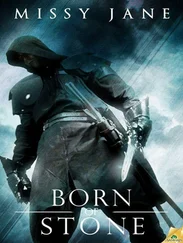He left the plate in the sink and stood in the doorway to the bedroom and looked at his empty bed. He could see, out the window there, smoke rising from the chimney in the cottage he’d had spruced up for Hattie Harris, down the hill at the woods’ edge. A former slave cottage, was the irony there. The chimney smoke trailed off above the trees of his woods, sloping down the long wooded decline to the hidden lake, dissipating to nothing. There was no birdsong. Some respite between the noisy late afternoon and the last ephemeral moments of dusk. The heavy presence of his wife’s absence — not just gone from home but no longer a presence in the living world — was suddenly unbearable, and he wept, silently, standing there, let his tears blur those things before his eyes. Like the vision of a weary newborn child. He stood there until his eyes stopped leaking and dried themselves, stiffening trails down his cheeks he could feel tightening the skin. Such a mortal feeling, this small thing.
DURING JANE’S FIRST few years, her two much older brothers would come home from the state college in the summers to help out, wiry and Indian-brown like their father from working the experimental farm up there. Jane was happiest then, with these grown-up brothers she hardly knew teasing her and playing jokes on her, Sylvester, Jr., tickling her ( Don’t do that to HER , their mother said), and all the conversation around the table. Her father seemed better able to avoid drinking when his older sons were around.
Now they were grown and gone, with families of their own, and it was just her, Grace, and their parents. Sylvester, Jr., and Belmont married and took their wives all the way out to Wyoming, impossibly — unimaginably — far away, to work on a ranch and look for a piece of land to buy and ranch for themselves. Sylvester, Jr., wrote a postcard back:
It’s a big place. Has to be. Takes ten times as much grassland to graze a cow here as back home. Winter is hard, hard, hard. Summer is heaven but spring (around June) brings mosquitoes that make ours look like mites. Saying is, mosquitoes that could stand up and mate with a wild turkey, ha. Work is constant, and people are very tough. Belmont and I are saving everything we can and hope to buy a good sized spread in a few years. If you want to see us, you need to come out. Much love from your sons and brothers. S.S.C., Jr .
“We’ll never see them again,” her mother said, dropping the card into the stove and clanking the lid back down. “Got away when they could, didn’t they?” Her father said nothing, as if he hadn’t even heard.
Days seemed longer then, on the farm. At dawn everyone rose and set to the chores, she and Grace milking, her mother getting breakfast together in the kitchen, her father checking the stock for losses or injury or sickness come in overnight. The sourceless light in distant trees, in the dust raised by their feet in the yard. Jane helped her mother scatter cracked corn for the chickens and check their nests and hideaways for eggs. Before heading to school, Grace cleaned up from breakfast as her mother began to plan the noon and evening meals, the dog-trot silent save for the sounds of her working the kitchen or sweeping the floors or churning laundry in the grassless, immaculately swept yard, hauling water from the pump on the back porch in a heavy bucket, heating it in the big black pot over a fire, stirring the dirty clothes with a long, stout hickory stick. There was the bustling of the noon dinner meal when her father came in, ate, then went back out to work, the clanking and scrubbing of cleaning up, the long hot still afternoon, her joy at Grace’s arrival home from school, then preparation for supper, and finally the rustling descent of quiet voices and bodies slowing into the evening until everyone slept.
Soon enough she was given the job of feeding the poultry and pigs herself. The pigs had their large pen, below the work shed, and when she wasn’t kept busy with something she sometimes slipped away and watched them, their strange aimless waddling, and then sudden activity, frightening the shoats into loud squealing races around the pen as if some predator were after them, but really it was all in their minds. She came to understand that it was play. She didn’t want to eat pork after that, and became even thinner, for that was their daily meat except for the occasional venison, rabbit, or squirrel. And there was really no avoiding it entirely, since nearly every vegetable they ate was simmered with fatback for hours.
She fed what little table scraps there were to the two dogs, but otherwise they hunted and scavenged. They knew not to get after the chickens, somehow, some sense of self-preservation. There was the hound and the shaggy thin-shouldered mutt with a long snout and a natural smile, with black fur around one eye and white around the other. This one she took for her dog and named it Top. How’d you come up with that name? they said. He’s Top Dog , she said, and they laughed, even Grace and her mother. The hound had no interest in following her but Top followed her everywhere. He would allow Jane to gaze at him and he would gaze right back at her. He didn’t smile, just looked attentive and expectant, as if he could feel what she was feeling about him. Most dogs when you looked at them, strays mostly wandering through, would look away. Her father said it was the wild still in them somewhere deep. But Top was more like a person that way, not afraid of her, at least, and sometimes if she didn’t pay him enough attention he would come over and rest his snout on her arm or leg and sigh, then look up at her with just his eyes, and if she was distracted and didn’t pet him, then he would give her a little kiss-lick on her hand or forearm, then press his snout onto her arm or leg again until she scratched him behind the ears or rubbed the top of his head or his back. Sometimes he would roll onto his back and allow her to place her ear against his furry chest and listen to his heart beating, so fast, even when he seemed just as calm as could be. She figured a dog had to get in all his heartbeats in a hurry if he wasn’t going to live as long as a person might.
She loved the taste of cool buttermilk more than anything in the world. And her favorite after buttermilk was butter on hot biscuits, and after that, butter on hot cornbread, and after that, fried chicken, and after that, apple pie and the rare treat of homemade ice cream, and after that, and later on, fried bream from their own pond. Especially the crisp, salted tails.
Between the ages of four and five, she began to make sure she was the last to sleep. It made her feel safer to be the last one awake, watching and listening to the world settle into the evening quiet and dark. The steady breathing, snoring, sleep-mumbling of the others made her feel more awake and alive, and that was a kind of safeness, too. An owl hooted down in the woods and she hoped no one would die. She studied the pale palms of her hands in the darkened room. The skin there gave off a light as soft as starlight on birch bark. How private, the palm of one’s hand. How intimately one knows it. So she may have said, had she the words.
She was a guardian over the slumbering household in her sole awareness of it, and in that comforting role she could finally let go and sleep herself. Although one night, when she was just dropping into that long dark nothing where for an unknown time you ceased to exist, and from which may never come back, it was so hard to get over the idea of that — for every night she said her prayers, If I should die before I wake, I pray the Lord my soul to take —she heard the low growling of something, a growl of something that sounded massive, slow, and fierce passing just below the window of her room. Some unspeakable monster. Her heart seized and she shouted out. Grace sat up in her bed, looking around for whatever was the cause of it, and her mother and then her father came running from their beds across the breezeway. Her mother came to her bedside, while her father remained in the doorway open to the breezeway and glittery moonlight slanted on the unpainted boards there. Her father took a lantern around the house to look for tracks. But there was nothing, they said, there had been no beast.
Читать дальше












